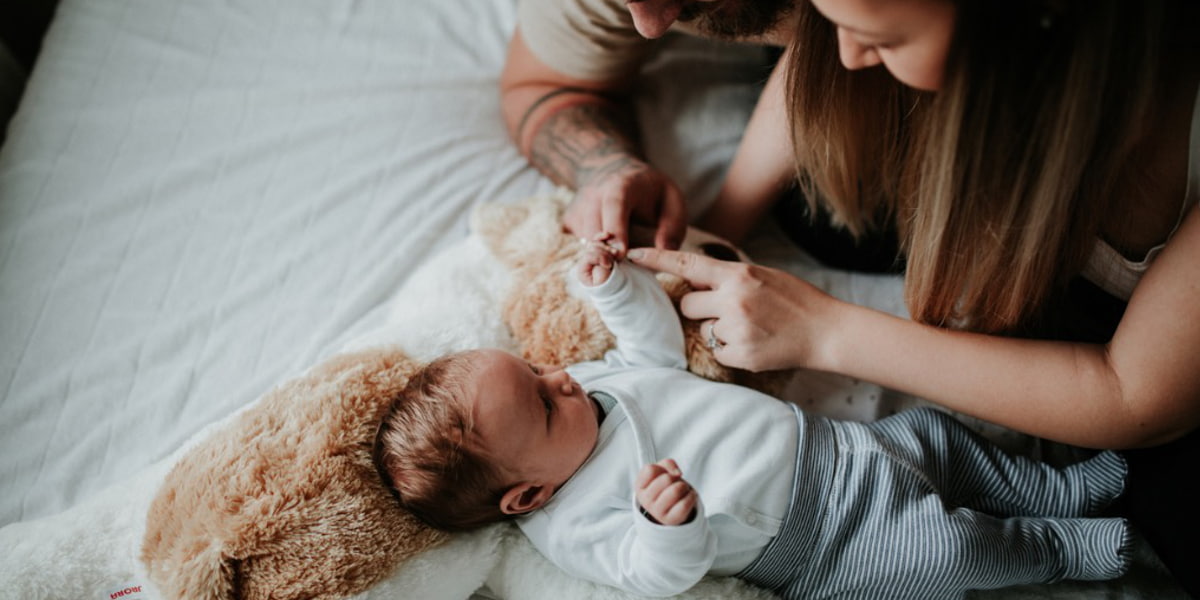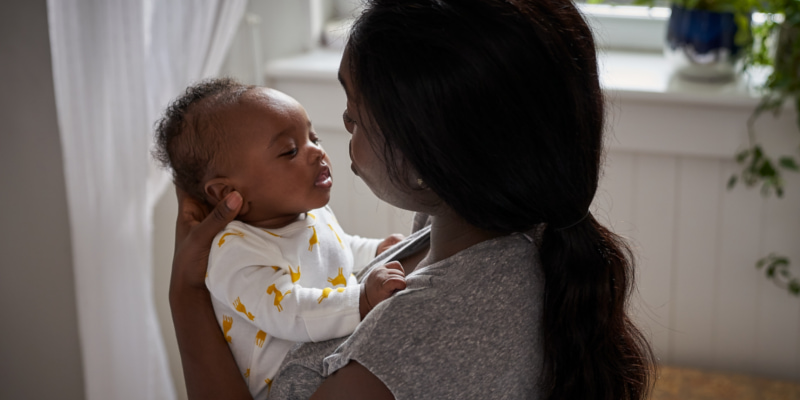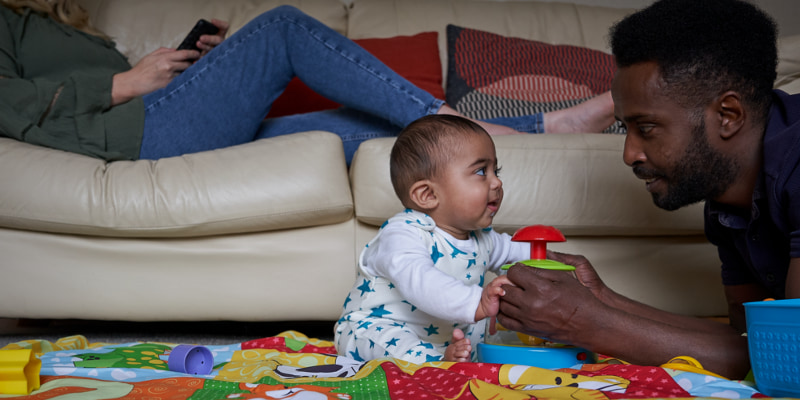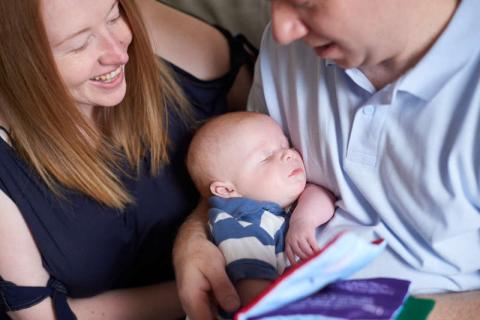Being a new mum is an exciting time, but it certainly isn’t easy. All new mums experience a mix of emotions and changes as they get used to life with a new baby. Even at the best of times it isn’t unusual to feel low in mood, more anxious or both. But there are lots of things you can do and support available to help you look after yourself. Because looking after your mental health is important for both you and your baby.
Understanding your mental health
It can be normal to experience lots of ups and downs when you have a new baby. There’s a lot to get used to – physically, socially and emotionally. This can all affect your mood.
Your wellbeing is important to both you and your baby. Although their emotions are just developing they can pick up on feelings of stress. But, chatting and singing to your baby can help them feel safe and secure and can help you form a loving relationship.
Remember to take time for yourself too, chat and spend time with family or friends or get some ‘me time’ when possible.
Remember that your midwife, health visitor, family nurse or GP are there to talk if you have any worries about how you’re feeling. Managing your wellbeing whilst looking after a new baby can be tough, so here are some simple tips to help.
Tips for boosting your mental health
Tip #1: Talk about your feelings
Speak to your partner or talk to your friends and family about how you feel. Don’t be afraid to reach out for support. Talking through your worries can help a great deal.
Tip #2: Sing along

Your baby loves music and singing can help lift your mood too. The Scottish Book Trust have a series of online Book Bug sessions running at the moment. The online sessions have songs, rhymes and dances to get you and your baby moving. There are also calming soothing songs too so you can choose what best suits the mood of you and your baby. Finish off with Storytime and snuggle up to a book.
Tip #3: Rest
Getting enough rest whilst looking after a new baby is so important but it can be really hard to do. If you are ready to accept help from others this can make help. So does eating well and trying to sleep when your baby sleeps. These can all make a huge difference to your energy levels.
Tip #4: Take it a day at a time
If you’re feeling overwhelmed, try not to spend too much time looking at the news and social media as this can feel overwhelming. Try making a time limit for how much time you spend online and stick to trusted news sources.
Tip #5: Understanding your relationship with your baby

Being a new mum is a journey and life with a new baby changes every day. Your baby is constantly watching and listening to the world around them. Every day they learn something new from you and you will find you learn from them too. As your relationship grows you will find it easier to pick up on your baby's cues. Talk and touch help your baby feel warm, secure and loved. Our section on wellbeing for wee ones has lots of advice on engaging with your baby so they feel connected to you, safe and cared for. Ready Steady Baby also has lots of advice for getting to know your new baby.
Tip #6: Get outdoors
Staying active and getting out and about is a great way of boosting your mood. The fresh air is great for baby too and should help them sleep better at night – definitely a win! Sometimes leaving the house with a wee one (and all the stuff they need!) can seem like an impossible task, but it’s worth it once you’re outdoors. Try keeping a bag packed with everything you need (nappies, wipes, water, suncream) so that you can head out without too much fuss. Replace anything you use in the bag when you get back in and it’ll be ready for you to grab next time.
Tip #7: Don’t worry about being a supermum
Mums often put extra pressure on themselves. Try to cut yourself some slack and accept that looking after your baby is a full time job! Everyone in the household may not manage to get all the housework done all the time. As long as your baby is happy and healthy, you are doing a great job.
Tip #8: Don’t be afraid to ask for what you need
You may find yourself surrounded by friends and family wanting to help, but maybe not offering the kind of help you actually need. So don’t be afraid to be clear about what you need – they want to help, remember! So if you’d rather someone brought a lasagne or stew than flowers, just ask them. If you’d rather someone hung up your washing and emptied the dishwasher while you have a sleep, instead of taking you out for lunch, let them know.
For more tips like this, check out the Tiny Happy People website here.
Looking after yourself
Children pick up on how their parents are feeling – so it’s important you look after yourself and feel the best you can. But sometimes for parents looking after themselves is the last thing on their list. It’s hard to be strong and supportive for anyone else if you’re feeling tired and low. Don’t think of carving out a bit of “me time” as a selfish thing to do – it’s an important part of caring for your kids. If you’re worried about your own mental health, don’t push it to the bottom of your to do list. Talk to a friend, a listening organisation or your GP. You can find lots more help on in our Family Support Directory.
Getting support
Sometimes as a new mum you may feel that no-one understands how you’re feeling. But lots of mums will be feeling the same as you, so it can be helpful to talk to other new mums. This can help you find ways of coping, and remind you that you're not alone.
Remember, when looking for support online it's important to stay safe. Here are some questions to ask when looking at a peer support group:
- Who is running the support group?
- Can I find out if they have mental health first aid training?
- Do they have knowledge of signposting routes for further support?
- Does the group have guidelines? What are they?
Peer support groups should be clear about what they offer and should be happy to spend time discussing any questions you may have. The charity Mind has helpful pages about what peer support is and how to access it. If in doubt ask your midwife, health visitor, family nurse or GP.
There are lot of other ways to find support for your mental health. A directory of third sector services supporting mental health for women, babies and their families can be found here.
Remember that you’re not alone – all of us struggle from time to time. And it's also important to remember you can still access support during this time. Talk to your midwife, health visitor, family nurse or GP if you’re finding it all a bit much.
 Activities & Play
Activities & Play Behaviour
Behaviour Childcare
Childcare Development & Growing Up
Development & Growing Up Family, Friends & Relationships
Family, Friends & Relationships Feeding Your Baby
Feeding Your Baby Food & Eating
Food & Eating Health & Safety
Health & Safety Mental Health & Wellbeing
Mental Health & Wellbeing Money & Work
Money & Work Online Behaviour & Safety
Online Behaviour & Safety Pregnancy & First Days
Pregnancy & First Days School & Education
School & Education Sleep
Sleep









 Feeding Your Baby
Feeding Your Baby
 Sleep
Sleep